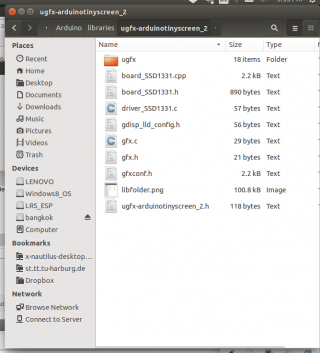I stumbled upon this post while looking for an RTOS for the Teensy:
http://forum.pjrc.com/threads/26377-ChibiOS-RT-2-6-5-RTOS-for-Teensy
As there is great progress going on for the ILI9341 TFT drivers, I was curious if anybody
has started porting uGFX (http://www.ugfx.org/).
I guess this would be very very handy for nice UIs. It it pretty widely used.
http://forum.pjrc.com/threads/26377-ChibiOS-RT-2-6-5-RTOS-for-Teensy
As there is great progress going on for the ILI9341 TFT drivers, I was curious if anybody
has started porting uGFX (http://www.ugfx.org/).
I guess this would be very very handy for nice UIs. It it pretty widely used.


